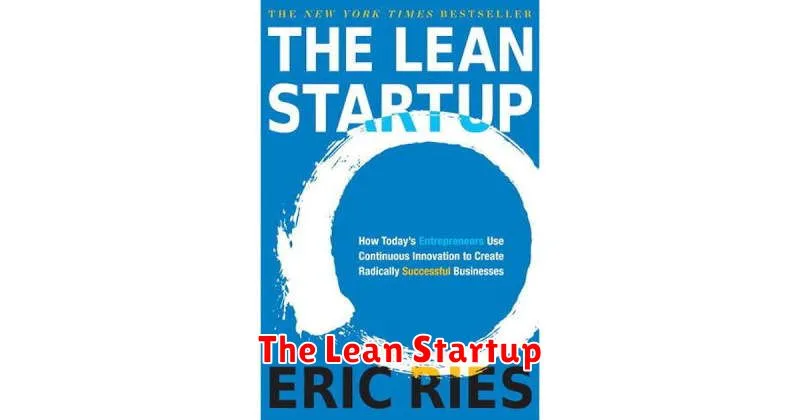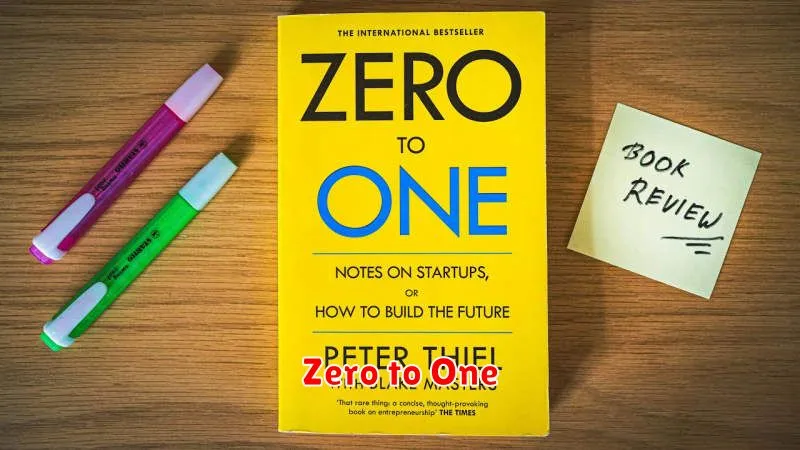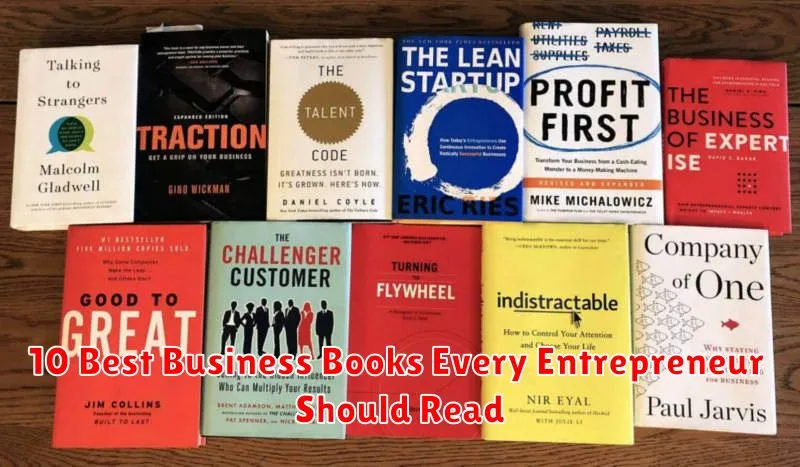Embarking on the entrepreneurial journey is both exhilarating and challenging. Aspiring and seasoned business owners alike constantly seek knowledge and inspiration to navigate the complexities of the business world. One of the most effective ways to gain valuable insights and cultivate a business acumen is by delving into the wisdom shared within the pages of influential business books. Reading allows entrepreneurs to learn from the successes and failures of others, fostering growth and ultimately increasing the likelihood of business success. This curated list of the 10 best business books offers invaluable guidance for every stage of entrepreneurship, from ideation to scaling a thriving enterprise.
Whether you are a budding entrepreneur seeking to refine your business plan or an established leader looking to enhance your business strategies, these meticulously selected business books provide actionable advice, practical tools, and inspiring stories. Each book offers a unique perspective on the business world, covering crucial topics such as leadership, innovation, marketing, finance, and personal development. By immersing yourself in the insights presented within these pages, you will gain a competitive edge in the business landscape and be better equipped to build and sustain a successful and impactful business. Dive in and discover the transformative power of knowledge with these 10 best business books every entrepreneur should read.
Why Reading Business Books Helps
In today’s dynamic business world, continuous learning is essential for entrepreneurial success. Reading business books provides invaluable insights and knowledge that can significantly impact your journey.
Gaining Knowledge: Business books offer a concentrated source of information on various aspects of business, from strategic planning and financial management to marketing and leadership. They expose you to proven strategies, best practices, and case studies, broadening your understanding of different business functions.
Developing Skills: Reading actively engages your mind, helping you develop critical thinking, problem-solving, and analytical skills. By exploring diverse business concepts and scenarios, you enhance your ability to make informed decisions and navigate complex challenges.
Staying Ahead of the Curve: The business landscape is constantly evolving. Business books provide a way to stay updated on the latest trends, technologies, and market dynamics. This knowledge empowers you to anticipate changes and adapt your strategies accordingly, maintaining a competitive edge.
Inspiration and Motivation: Many business books feature stories of successful entrepreneurs and their journeys. These narratives can serve as a powerful source of inspiration and motivation, encouraging you to persevere through challenges and pursue your goals with renewed vigor.
Choosing Books Based on Your Stage
Selecting the right business book can significantly impact your entrepreneurial journey. Consider your current stage when making your choice. Are you just starting out, looking to scale, or navigating a mature business?
Startup Phase: Focus on books covering ideation, market validation, and securing funding. Look for resources that provide practical advice on building a minimum viable product (MVP) and attracting early customers.
Growth Phase: As your business grows, explore books on leadership, team management, and scaling operations. Strategic planning and effective delegation become crucial during this period.
Maturity Phase: For established businesses, books on innovation, disruption, and sustaining competitive advantage become relevant. Consider exploring topics on change management and adapting to evolving market dynamics.
The Lean Startup

“The Lean Startup” by Eric Ries introduces a groundbreaking approach to launching and scaling businesses under conditions of extreme uncertainty. It challenges traditional business planning methods and advocates for a more iterative, experimental process.
The core concept revolves around the “build-measure-learn” feedback loop. This encourages entrepreneurs to rapidly develop minimum viable products (MVPs), gather data on customer usage, and then pivot or persevere based on the learning acquired. This cyclical process minimizes wasted resources and maximizes learning.
Ries emphasizes the importance of validated learning over vanity metrics. Entrepreneurs are urged to focus on measurable progress towards achieving product-market fit, rather than pursuing superficial indicators of success. This data-driven approach helps startups navigate the uncertainties inherent in the early stages of development and increases their chances of building successful, sustainable businesses.
Atomic Habits

In Atomic Habits, James Clear presents a practical framework for gradual self-improvement. He argues that small changes, consistently applied, yield remarkable results over time. Clear introduces the Four Laws of Behavior Change – make it obvious, make it attractive, make it easy, and make it satisfying – as a simple yet powerful method for building good habits and breaking bad ones.
This book is particularly relevant for entrepreneurs who need to cultivate the discipline and resilience required for navigating the challenges of building a business. Clear provides actionable strategies for optimizing productivity, maintaining focus, and achieving long-term goals through incremental progress.
Key concepts explored include habit stacking, temptation bundling, and the two-minute rule. These techniques provide practical tools for integrating positive habits into daily routines and overcoming the inertia that often hinders personal and professional growth. Atomic Habits emphasizes the importance of systems over goals, encouraging readers to focus on the process rather than solely fixating on outcomes.
Zero to One

In “Zero to One,” Peter Thiel, co-founder of PayPal and Palantir, challenges conventional startup wisdom. He argues that instead of iterating on existing ideas (copying things that work – going from one to n), entrepreneurs should focus on creating something entirely new – going from zero to one. This means identifying and exploiting unique opportunities that others have overlooked.
Thiel emphasizes the importance of monopoly. He posits that successful businesses create monopolies by offering something so superior that competition becomes irrelevant. This dominance, achieved through technological innovation or proprietary business strategies, allows companies to generate substantial long-term value.
The book explores the power of contrarian thinking, encouraging entrepreneurs to question prevailing assumptions and identify areas where conventional wisdom is flawed. Thiel provides practical advice for building a successful startup, from identifying a unique market opportunity to building a strong company culture.
The $100 Startup
Chris Guillebeau’s The $100 Startup inspires aspiring entrepreneurs to launch low-cost businesses by leveraging their passions and skills. The book emphasizes identifying a marketable skill and building a business around it, even with limited capital. It’s a practical guide, filled with real-world examples of individuals who successfully started businesses with minimal investment.
The book champions the idea of “micro-businesses,” demonstrating how entrepreneurs can create profitable ventures without needing traditional funding or complex business plans. It focuses on actionable steps, encouraging readers to start small, test their ideas, and iterate based on customer feedback. The $100 Startup ultimately empowers individuals to pursue their entrepreneurial dreams in a sustainable and accessible way.
Good to Great
In “Good to Great,” Jim Collins explores what separates good companies from truly exceptional ones. He and his research team rigorously analyzed companies that made the leap from good to great performance and sustained that performance for at least fifteen years.
The book identifies key concepts that contribute to sustained greatness, including the Level 5 Leadership, a paradoxical blend of personal humility and unwavering professional will. It emphasizes getting the right people on the bus (and the wrong people off) before figuring out where to drive. The Hedgehog Concept encourages companies to focus on what they can be best in the world at, what drives their economic engine, and what they are deeply passionate about. A Culture of Discipline is also highlighted as a crucial element for long-term success.
“Good to Great” offers practical and timeless insights into building an enduringly great organization, supported by compelling research and real-world examples.
Thinking, Fast and Slow
Daniel Kahneman’s Thinking, Fast and Slow delves into the two systems that drive the way we think. System 1 is fast, intuitive, and emotional; System 2 is slower, more deliberative, and logical. Understanding these systems is crucial for entrepreneurs.
This book illuminates how cognitive biases influence our decisions, from investment strategies to hiring practices. By recognizing these biases, entrepreneurs can make more rational choices and mitigate risks.
Key takeaways for entrepreneurs include recognizing the impact of framing effects, understanding loss aversion, and appreciating the power of priming. Applying these concepts can lead to improved negotiation skills, more effective marketing campaigns, and better overall business acumen.
The E-Myth Revisited
Michael Gerber’s “The E-Myth Revisited” is a foundational text for understanding why so many small businesses fail. It challenges the common assumption that technical expertise translates directly into entrepreneurial success.
Gerber introduces the concept of the three personalities residing within every entrepreneur: the Technician (who loves doing the work), the Manager (who craves order and systems), and the Entrepreneur (the visionary who focuses on the future). He argues that an overreliance on the Technician personality is often the root cause of stagnation and burnout.
The book emphasizes the importance of working on the business, not just in it. It advocates for creating systems and processes that allow the business to operate effectively, even without the constant presence of the owner. This allows the entrepreneur to focus on strategic growth and innovation, rather than being bogged down in day-to-day operations.
Deep Work
In an increasingly distracting world, Cal Newport’s Deep Work argues that the ability to focus without distraction on a cognitively demanding task is becoming increasingly valuable, and simultaneously, increasingly rare. It’s this skill, he posits, that allows you to quickly master complicated information and produce high-quality work at an elite level.
The book explores the four rules for cultivating deep work:
- Work Deeply: Embrace strategies to minimize distractions and schedule dedicated time for focused work.
- Embrace Boredom: Train your mind to resist the urge to constantly seek novelty and entertainment.
- Quit Social Media: Newport advocates for drastically reducing or eliminating social media usage to protect your attention.
- Drain the Shallows: Minimize shallow work, such as email and meetings, to maximize time for deep, impactful work.
Deep Work offers a practical framework for improving your focus and achieving peak productivity in today’s demanding business landscape. By mastering the art of deep work, you can enhance your cognitive abilities and achieve greater professional success.
Start with Why
Simon Sinek’s “Start With Why” explores a powerful concept: people don’t buy what you do, they buy why you do it. This book challenges businesses to shift their focus from product features to the underlying purpose that drives them.
Sinek argues that organizations that prioritize their “why” inspire greater loyalty and create deeper connections with their customers and employees. He introduces the Golden Circle, a model that explains how inspiring leaders and companies think, act, and communicate, starting from the inside out (why, how, what).
By understanding and articulating their “why,” entrepreneurs can build stronger brands, attract top talent, and foster a culture of purpose and innovation. This book provides a practical framework for discovering and communicating your core purpose to create a lasting impact.

